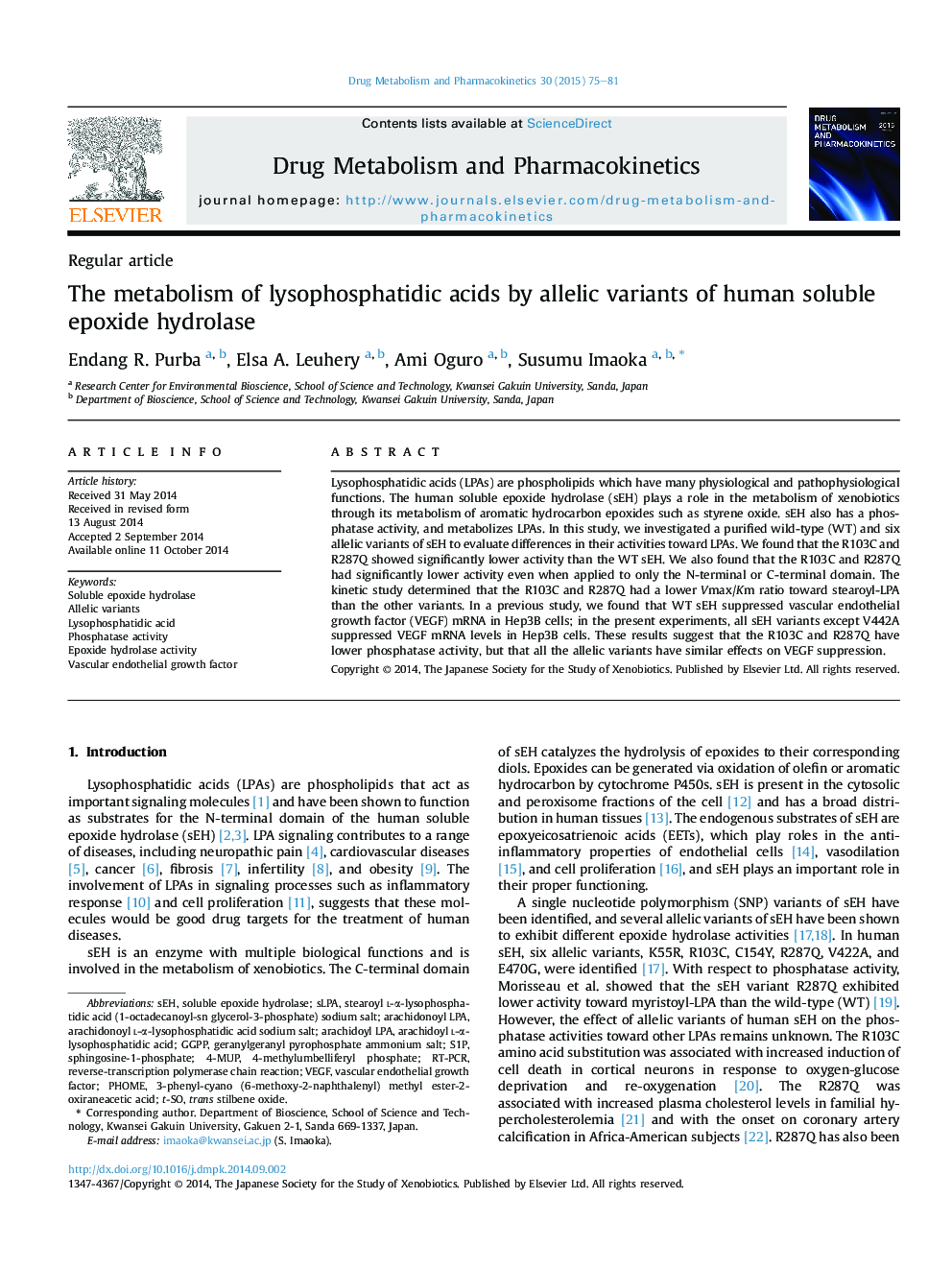| Article ID | Journal | Published Year | Pages | File Type |
|---|---|---|---|---|
| 2478902 | Drug Metabolism and Pharmacokinetics | 2015 | 7 Pages |
Lysophosphatidic acids (LPAs) are phospholipids which have many physiological and pathophysiological functions. The human soluble epoxide hydrolase (sEH) plays a role in the metabolism of xenobiotics through its metabolism of aromatic hydrocarbon epoxides such as styrene oxide. sEH also has a phosphatase activity, and metabolizes LPAs. In this study, we investigated a purified wild-type (WT) and six allelic variants of sEH to evaluate differences in their activities toward LPAs. We found that the R103C and R287Q showed significantly lower activity than the WT sEH. We also found that the R103C and R287Q had significantly lower activity even when applied to only the N-terminal or C-terminal domain. The kinetic study determined that the R103C and R287Q had a lower Vmax/Km ratio toward stearoyl-LPA than the other variants. In a previous study, we found that WT sEH suppressed vascular endothelial growth factor (VEGF) mRNA in Hep3B cells; in the present experiments, all sEH variants except V442A suppressed VEGF mRNA levels in Hep3B cells. These results suggest that the R103C and R287Q have lower phosphatase activity, but that all the allelic variants have similar effects on VEGF suppression.
Graphical abstractFigure optionsDownload full-size imageDownload as PowerPoint slide
